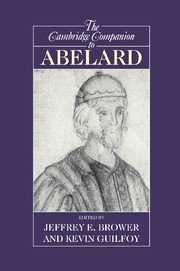7 - Trinity
Published online by Cambridge University Press: 28 May 2006
Summary
During the Middle Ages, theology is the preeminent academic discipline and, as a result, most great thinkers of this period are highly trained theologians. Although this much is common knowledge, it is sometimes overlooked that the systematic nature of medieval theology led its practitioners to develop full treatments of virtually every area within philosophy. Indeed, theological reflection not only provides the main context in which the medievals theorize about what we would now recognize as distinctively philosophical issues, but it is responsible for some of their most significant philosophical contributions. To give just a few examples: it is problems with the Christian doctrine of the Incarnation that prompt medievals to develop the notions of substance and person in striking and original ways; it is problems with the doctrine of the Eucharist that lead them to consider the possibility of accidents that do not inhere; and it is problems of interpreting particular scriptural texts, such as the Book of Job, that introduce refinements in their understanding of the nature and purpose of evil.
- Type
- Chapter
- Information
- The Cambridge Companion to Abelard , pp. 223 - 257Publisher: Cambridge University PressPrint publication year: 2004
- 15
- Cited by



